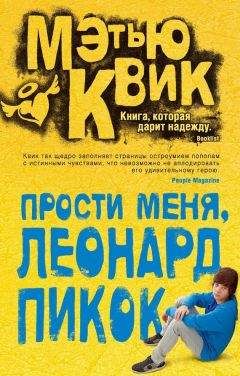Stuart Kaminsky - The Dog Who Bit a Policeman
Mishka had assured Elena and Sasha that Tchaikovsky, the pit bull, would kill any human or animal on command. Mishka was particularly proud of Tchaikovsky, who had been named thus because the famous composer had lived in Mishka’s hometown of Klin, an hour northwest of Moscow on the old Leningrad Highway.
The beagle-faced Mishka had warned the two young officers that they were to be very careful with Tchaikovsky.
The white pit bull with black spots had seemed docile enough when Mishka had taken him from his pen, petting him and talking softly to the dog, even nuzzling the animal with his head.
Tchaikovsky had wagged his tail.
“Don’t be deceived,” Mishka had said as he petted the animal.
“Our Tchaikovsky can, on command or on his own if provoked, or even for no reason, attack and sink his teeth into an antagonist with deadly and determined ferocity. Getting Tchaikovsky to release his grip can be very difficult, and if it is a death grip, it can be nearly impossible until the victim is dead.”
“That is very reassuring,” Sasha had said, and Mishka, recognizing no irony in the comment, had responded:
“Yes.”
Sasha was not particularly confident about placing his safety in the jaws of a pit bull. These were dangerous men. If the pit bull didn’t do well, Sasha might be in very serious trouble.
Illya and Boris, a bit clumsily, questioned Sasha, whom they knew as Dmitri Kolk, about Kiev. Sasha had casually responded using his wife, Maya’s, history in Kiev as his own. In spite of the desire to get back to the hotel room, turn off the lights, and close the drapes, he chatted, drank, accepted some Italian biscotti, which he normally liked but which now caused a renewed wave of queasi-ness, and made himself as amiable as possible.
“It is getting a bit late and you will want to prepare your dog,”
said Boris, standing.
“Yes,” said Sasha, taking a final bite of biscotti and saying, “delicious.”
“Thank you,” said Illya. “Our driver will take you back to the hotel.”
“Good,” said Sasha, straightening his slacks and adjusting his blue silk paisley tie. “And tomorrow I would like to discuss the proposed operational merger with your boss.”
“I think that can be arranged,” said Boris. “But tonight, your dog fights. He has a name?”
“Tchaikovsky,” said Sasha.
Boris and Illya smiled.
“Amusing,” said Boris.
“Disarming,” said Sasha.
The two men ushered Sasha to the entrance to the building. Two women in their forties, carrying shopping bags, stepped aside to let the three men pass. The Lincoln was waiting and the driver was behind the wheel. There was no doubt that someone had been listening to the conversation in the office, that someone had probably been watching; otherwise, what was the point of driving all the way out here?
“One last question,” said Boris. “How well do you know the woman you are with?”
“Lyuba Polikarpova?” asked Sasha.
“Yes,” said Boris.
“She’s Russian,” Sasha said casually, though he was sensing warning signals. “I picked her up last time I came to Moscow for some fun and called her when I returned here on Tuesday. She’s a whore, but an educated one who asks no questions, looks good, and is very accommodating. Why do you ask?”
“Caution,” said Boris with a smile Sasha did not like. “Just being careful.”
“Good,” said Sasha. “I like working with people who are careful.”
The three men shook hands and Sasha got into the Lincoln, which drove off. Boris and Illya went back into the building to the office. Behind the desk sat a young man, younger than Sasha. He was dressed in dark slacks, a fresh white dress shirt, and a pullover black cashmere sweater. The young man had a round, pink face with a thin white scar about two inches long running in a straight line directly under his nose. His hair was dark and recently cut, and if one was close enough, the musky smell of expensive aftershave was faint but evident.
His name was Peter Nimitsov. His nickname, never spoken in his company if one wanted to survive the encounter intact, was
“Baby Face.” He was twenty-seven years old and had been born in the apartment building in which he now sat. He had formed a gang in the complex of crumbling concrete high rises when he was fourteen and the Soviet Union and Communism had begun to die.
When he was seventeen, the gang had taken over these apartment buildings and extended their influence to other complexes, eliminating competition and making deals with other gangs. When he was strong enough, Peter Nimitsov had begun to move his operation inside the Outer Ring Circle. In the course of his rise, Nimitsov had murdered, suffered his white scar, and grown powerful enough to have his Zjuzino Mafia feared or respected by even the largest and most ruthless of the other Mafias of Moscow.
Peter kept a very low profile. His goal was power and wealth, not infamy, but power and wealth were a means to an end. He maintained a large suite at the National Hotel, but he lived in a luxuri-ous apartment adjoining the office in which he now sat. The apartment, like the office, was decorated in antiques of the Russian czars. Some had cost Nimitsov a great deal of money. Others had cost people their health or, in the case of one stubborn thief, a life.
Peter Nimitsov shared his wealth with his mother, father, sister, various relatives, and the initial members of his teenage gang, who formed the inner circle of those loyal to him.
Boris and Illya were front men, inner-circle Muscovites, hired bureaucrats who had held middle-level government jobs and lived on their meager salaries, bribes, and corruption before the fall of the system. The two men had connections, knew where skeletons were buried, and were invaluable to Peter. Both men were old enough to be their boss’s father, though neither had paternal feelings for the young baby-faced man behind the desk. They had seen him suddenly explode because of a lie told, a remark made. They had seen him draw a gun and begin to fire wildly at a member of his gang who had told a minor lie: Peter had begun to shoot, missing the man who had lied but killing another who had gone flat on the floor and taken a ricocheting bullet to the head. Peter had fired till he ran out of bullets. In addition to the dead man on the floor, Peter had shot one of his own cousins in the arm. The man who had lied had stood with his back to the door, hyperventilating, waiting for Peter to reload or order his death.
Instead, Peter Nimitsov had said, “Don’t lie to me again,” and let the man live.
Peter’s mother had told her friends that her son had always been a bit “emotional.” She did not share their belief that her son was quite mad, had inherited some disease of the mind from her father and grandfather, both of whom had died young with “brain ill-ness.” Peter’s mother was very proud of her son. Her father had swept up scraps of imitation leather in a shoe factory. Her grandfather had been a very unsuccessful thief who, till the day he died, bragged about his one supposed triumph, the stealing of a not-very-young horse from the Moscow stable of Czar Nicholas II.
Peter had listened to the conversation with Sasha from the next room. Now he sat thinking about it, running a finger gently over the ridge of his scar and biting his lower lip, deep in thought. “I don’t like him,” Peter finally said to the two men who stood before his desk.
This surprised neither Boris nor Illya, since Peter Nimitsov liked practically no one. Peter was into a wide variety of criminal activity centered mostly within twenty miles of where he now sat. But an increasing portion of his income was now coming from inside the Outer Ring Circle. Gambling, drugs, extortion, car theft were all sources of income-the dogfights were but a small part of Nimitsov’s enterprise. But dogs were Peter’s passion. All the czars had owned dogs, regal dogs, dogs bred especially for the czar. But Peter was interested not in how his dogs looked but how efficiently and with what style they killed.
Now, international expansion was a distinct possibility, and with it might well come the next step in his ambition. He had witnessed the deaths of many dogs, had begun as a boy, while engaging in his other criminal activities, to stage fights between stray dogs, taking bets, making money. But it was the fights themselves that excited the young man with the baby face. Women, drugs, gun battles did not mean anything to Peter, but the sight of two dogs trying to kill each other aroused his passion and even gave him erections that had to be satisfied immediately after the battle, with the closest prostitute in his employ.
“You think he is all right?” asked Peter, looking at the two men.
Peter’s eyes were blue, very blue.
Neither man wanted to commit himself, especially since their leader had expressed a reservation about the cocky young Ukrainian. If Boris or Illya proved to be wrong in their assessment, there was a good chance they would be found with their throats cut in a park or on a dark street, or in this very office. Peter was brilliant.
Peter was bold. Peter was leading them to great wealth, but Peter was clearly growing more mad each day. Neither man wanted to commit himself, but Peter was giving them no choice.
“I think he should be watched carefully,” said Illya.
“Watched carefully,” said Nimitsov, shaking his head. “I have already seen to that, but that wasn’t what I asked you. What did I ask you?”
“If Dmitri Kolk could be trusted,” said Illya, looking for help to Boris, who gave him none. Illya would have dearly loved to say that he did not know if the Ukrainian could be trusted, but Peter definitely did not want evasion. “I don’t trust him,” said Illya.
“Boris?”
“I don’t trust him either.”
“So,” said Peter. “We watch him. We do not let him out of sight.
He could be the police or State Security. He could simply be someone dishonest who plans to betray us. The czars lived on constant alert, except for the last Nicholas. That state of alert kept them alive, and those who would betray them dead. The woman?” Peter asked.
“Morishkov is almost certain that he has seen her before,” said Illya, on safer ground. “He still thinks she may be a police officer.”
“And Kolk doesn’t know it?” asked Peter, looking at Boris.
“I don’t think so,” said Boris. “I think she approached him, that-if she is a police officer-she wanted to get close to him to penetrate his operation.”
Peter thought for a while and then said, “If she is a spy, it troubles me that this Kolk from Kiev doesn’t know it. Follow her. Find what you can about her. Take her picture and show it around. Show it to our people in State Security. Show Kolk’s picture too. Meanwhile, we watch and we see how good a dog his Tchaikovsky is. I want Kolk’s dog to fight Bronson tomorrow if he wins tonight.”
“We won’t get any odds with Bronson fighting an unknown dog,” said Boris.
Bronson, a massive, shaggy, uncontrollable street stray, had killed nine opponents with a mad fury and a bloodthirst. After each battle, Bronson, who Peter had named for the American film star, had to be pulled off the dead dog he continued to bite. On more than one occasion, Bronson had turned on those trying to pull him off. One man had lost a finger. Several others had needed medical attention and numerous stitches.
“If Kolk’s dog wins tonight, I want to see Bronson tear this Kolk’s animal to pieces tomorrow,” said Peter. “I want Kolk humbled and manageable, very manageable.”
Chapter Four
“Is your word no good?” came the unmistakable voice of Lydia Tkach over the phone.
There had been no hello, no identification, no small talk.
Rostnikov was sitting at his desk, drinking a cup of abysmal coffee after having just called the Leningradskaya Hotel and leaving a message for Casmir Chenko, Glahz, the one-eyed Tatar. He had no idea how long it would take to hear back from Chenko. In fact, he had no idea whether he would ever hear from him, which would mean the usual legwork.
And now, Lydia Tkach.
Sasha’s mother had been enough trouble when she was working at the Ministry of Information, but since her retirement, Rostnikov was convinced, Lydia had a daily checklist of those who required her scolding, which reminded all who knew her of the angry cawing of one of the big gray-and-white crows that ruled the bird world of Moscow.
The list of those most in need of scolding began with her own son and daughter-in-law. Lydia no longer lived with Maya, Sasha, and their two children, but she sat with the children while Maya and Sasha worked. This gave her certain privileges, such as camp-ing rights in the small apartment and the right to complain about child rearing, the dangers of her son’s job, and the temptations that faced her daughter-in-law in the workplace. But Lydia was an enigma, a hard-of-hearing enigma. Her grandchildren loved her, and Lydia had begun supplementing her son’s income.
Lydia had saved her money and her dead husband’s pension.
Through bits of information picked up in the ministry when she worked, she had invested in a variety of borderline legal activities and made a great deal of money, though she told no one how much she had.
Within days of the end of the Soviet Union, Lydia had bought a state bakery on the Arbat. She had hired a Turkish baker to provide not only bread, which she sold at a reasonable price, but also inexpensive and simple pastries and cookies. Business had boomed.
Lydia had hired, at Rostnikov’s suggestion, Galina Panishkoya, who had just been released from prison, a woman whose grandchildren Rostnikov and his wife had taken in. The woman and the grandchildren were living with the Rostnikovs until suitable arrangements could be made, a dim prospect. Rostnikov knew that he would be paying, in some way, for Lydia’s generosity. It was a price he was willing to pay, though there were moments when he wondered if he had made a pact with a dark angel.
However, the major mistake in the Lydia Tkach saga had been made by Anna Timofeyeva, Rostnikov’s former chief in the Office of the Moscow Procurator. Anna had been forced to retire after a series of heart attacks and now lived in a one-story concrete-block apartment with her niece Elena. Anna had made the mistake of finding an apartment in the building for Lydia after Maya had issued an ultimatum that her mother-in-law move out. Anna had laid down rules when Lydia moved into her apartment down the hall.
No unannounced visits to Anna and Elena. No complaints about her daughter-in-law. No complaints about the dangers of Sasha’s job. No complaints about how her two grandchildren were being raised. And Lydia had to wear her hearing aid when she visited.
Lydia had violated all these rules and several others within hours of moving in.
Very close to the top of Lydia Tkach’s list was Porfiry Petrovich Rostnikov, who was to be hounded into getting her son a safe office job in Petrovka or State Security or the Ministry of the Interior or anywhere else.




